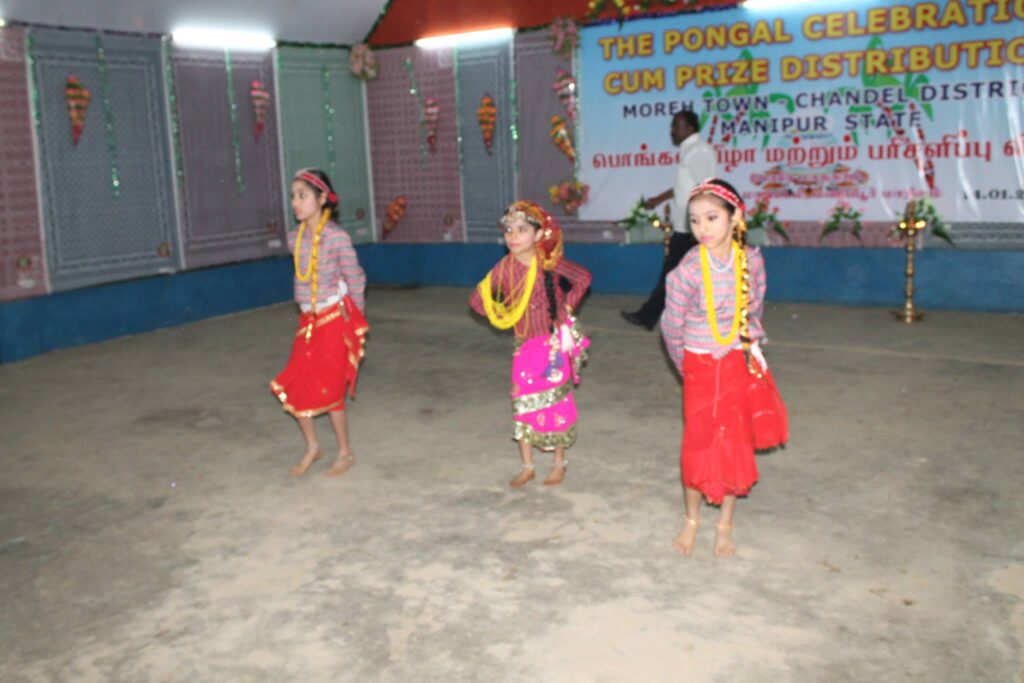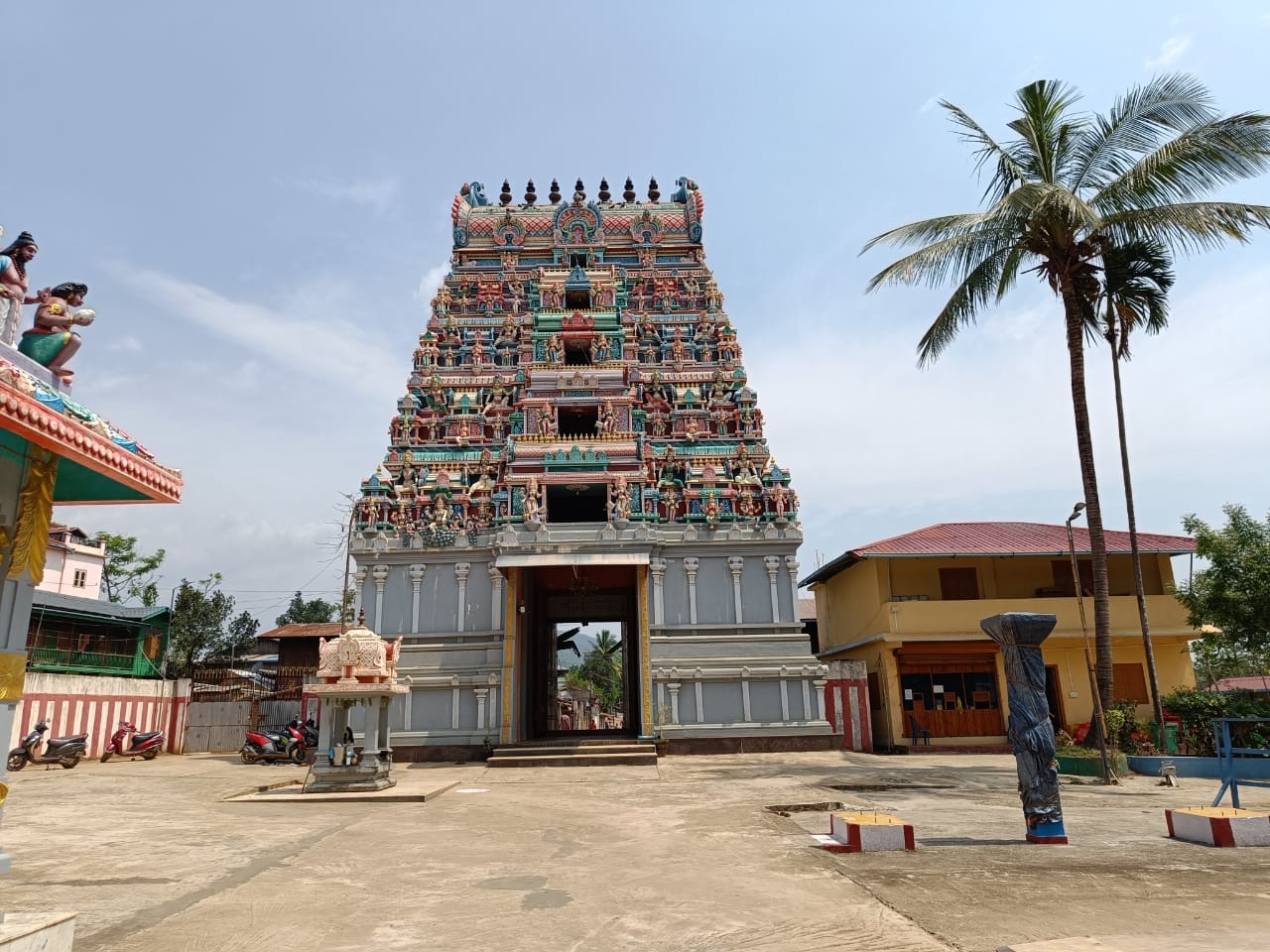Largely unaffected by the violence, these Moreh residents claim businesses have suffered greatly
After almost five months, mobile internet services were restored in strife-torn Manipur last week rekindling hope that normalcy could, perhaps, return some time soon. But, even before that news could be fully ingested, reports have now emerged of two Meitei lovers from Imphal who slipped into Kuki territory and were brutally murdered. As the news went viral, violent protests, clashes and unrest have returned to haunt Manipur and mobile internet services were pulled down yet again. The Governor has also, predictably, extended the swingeing Armed Forces Special Powers Act (AFSPA) from October 1.

For the dozens of Tamil-Manipuris languishing in different parts of TN after fleeing their hometown Moreh on the India-Myanmar border following the escalation of violence in May this year, the recent developments have further blurred any home of them returning to their homes and businesses that have been shut down for the past several months now.
Kajah Moinudeen (45), a resident of Prem Nagar in Moreh and an active office bearer of the Moreh Tamil Sangam, came to Chennai with his wife and daughter a few weeks ago as he had nothing to do in Moreh. The utensils shop he runs in Moreh has been closed for more than three months; his daughter’s school remains closed and most of his friends in the community have shifted to their relatives’ homes in TN and other parts of the country. Despite the escalation of violence due to clashes between Meitei and Kuki communities earlier this year, Kajah is among the few Tamils who stayed put in Moreh. “Because we were safe in Moreh. While there were clashes between the two communities in Moreh too, the 300-odd Tamil families who live and work in Moreh remained largely untouched during the clashes,” Kajah clarified. According to him, both community leaders in Moreh had asked rival community members to move out of town to safe havens set up by the respective groups until normalcy returned. “Thus the hostilities were lesser in Moreh although homes were razed and businesses were completely destroyed in some areas,” he adds.
“Because we were safe in Moreh. While there were clashes between the two communities in Moreh too, the 300-odd Tamil families who live and work in Moreh remained largely untouched during the clashes,”

Kajah, whose parents and grandparents were born and raised in Myanmar (formerly Burma) and later settled down in Moreh after they were forced to flee their country of birth following civil unrest, settled down in the border town as they could not manage to eke out a decent living in TN upon their return from Myanmar back then. The middle-aged businessman was born in Moreh and did his schooling sitting next to children belonging to the Kuki, Naga and Meitie communities among others. “We always called Moreh a mini-India as almost every community is present in this little town and we lived harmoniously for several years. We continue to be proud of what we have achieved,” he points out. “What has happened is very unfortunate and should not have happened at all. I doubt now if we can live again like the old times.”
While violent clashes and ethnic conflicts are nothing new to Manipur, which has witnessed several bloody clashes between various groups including Meiteis and Kukis, Nagas and Kukis, and even between Tamils and Kukis over the past decades, and a tense atmosphere prevailed perpetually in parts of the state, the most recent escalation of violence between Meiteis and Kukis was following the Manipur High Court’s decision to grant Scheduled Tribe status to the dominant Meitei community who constitute over 50 per cent of the state’s population. While Meitei’s are residents of Imphal valley and surrounding plains practicing Hinduism, the hills are occupied by Kuki, Naga, Tangkhul tribes who are mostly Christians. With the HC verdict, Kuki community leaders feared that the concession of ST status to Meiteis would mean that the community, which is already dominant in the state holding key positions of power in government, society etc., would grab more government jobs and nullify the special privileges that have been largely reserved for them. The grievance of the Meitei community has been that despite being 53 per cent of the state’s population, they owned barely 10 per cent of the land and were discriminated against in their land by the state government, which disallowed them from investing in or buying properties in areas reserved for tribals.
“We always called Moreh a mini-India as almost every community is present in this little town and we lived harmoniously for several years. We continue to be proud of what we have achieved,”
Protesting against the HC court order, various Kuki outfits organized a protest march in in ten of the state’s sixteen districts on May 3 this year when violence broke down in Churachandpur, a town south of Imphal. With the Meitei groups organizing counter-protests and blockades, the clashes spread across Manipur. Soon, thousands of people were displaced from their homes and, according to latest figures, 175 people have been officially declared dead while fresh bodies are being discovered on a daily basis in several pocket in the state. While announcing the restoration of the mobile internet services on September 23, Manipur Chief Minister Biren Singh had also called for the cancellation of the free movement regime that allows people residing close to both sides of the India-Myanmar border to venture 16 km deep into each other’s territory without any document. The state government has consistently been blaming the escalation of violence between Meitei and Kuki communities to the huge influx of Kuki community members from neighbouring Myanmar through the open border. Government sources claim that the ongoing civil strife in Myanmar has resulted in a large number of Kukis migrating to the Indian side fleeing the violence, threatening the position of the Meitei’s as the dominant community in the long run, which has also been cited as one of the reasons for them seeking ST status for protecting their lands and influence in the state.

“The Tamils have been living together peacefully and harmoniously with all communities of Moreh. The Kukis do not menace or harass any Tamils to evacuate or demand money,” the release signed by its secretary K.B.S Maniam stated
Neutral parties in this conflict like the Tamils, Punjabis and people of other nativities in Moreh also share the sentiment and point their finger across the international border for the most recent civil strife in Manipur. “This situation is due to the problems in Myanmar where people have completely lost faith in the government and armed groups are running riot,” said a Moreh resident of Tamil origin over a lengthy video conference call from Imphal. He claimed anonymity owing to the media clampdown in the region. “This conflict should be seen in the larger context and any efforts to resolve them are likely to fail unless one puts national interests first,” he claimed.
In an obvious attempt to distance itself from any rumour mongering, the Tamil Sangam in Moreh had put out a press release on September 6 condemning various allegations made with respect to the relationship between Kukis and Tamils living in Moreh. “The Tamils have been living together peacefully and harmoniously with all communities of Moreh. The Kukis do not menace or harass any Tamils to evacuate or demand money,” the release signed by its secretary K.B.S Maniam stated. The Tamil Sangam also requested all media outlets to verify facts before reporting any news related to the Tamil community in Moreh.
“This situation is due to the problems in Myanmar where people have completely lost faith in the government and armed groups are running riot,”
Since May, all trade – both legal and illegal – along the India – Myanmar – Thailand International Highway have been stalled. For the 300-odd Tamil families residing in Moreh, this means loss of livelihood as well as disruption in children’s education and access to healthcare. “Fortunately, we have been unaffected so far due to our connections in Tamil Nadu. I am sure things will return to normal soon,” asserts Kajah. He claims that he can’t wait to get back to Moreh and resume his normal life. “I will also take my family with me as I feel completely safe there. We will once again restore peace in our beautiful border town and show the world that diverse communities can live together in peace despite our differences,” Kajah says as he signs off.


